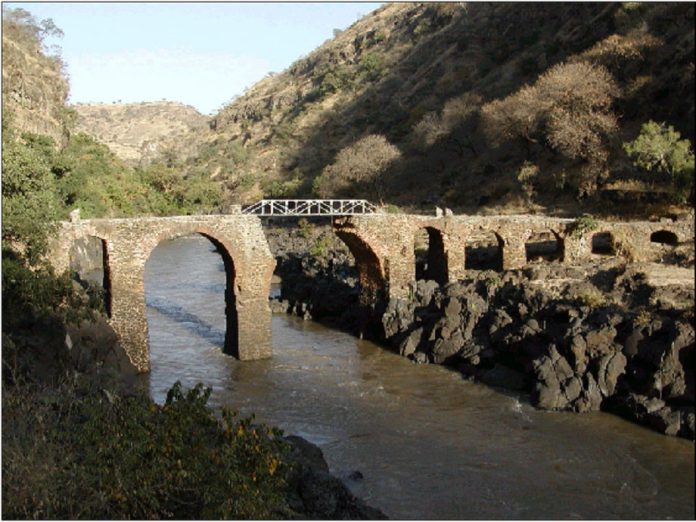Third filling of The Great Ethiopian Renaissance Dam (GERD)
Ethiopia recently announced the third phase of filling the reservoir created by the Grand Ethiopian Renaissance Dam (GERD) on the Blue Nile. The GERD is vitally important for the prosperity of tens of millions of people and the security of a region of vital importance to the US and the world.
An understanding of some basic facts is necessary to understand the situation. Although 85 percent of the water in the Nile originates in Ethiopia, in the Blue Nile, historically, the Ethiopian people have derived minimal benefit from the river. A lack of power has held back Ethiopian development, and its people have suffered from a lack of water for irrigation. Today, 83 percent of Ethiopians lack access to electricity; 94 percent rely on wood for daily cooking and heating. This is unacceptable, especially since Ethiopia possesses abundant water resources and hydropower potential, second only to the Democratic Republic of Congo in all of Africa. Only three percent of this potential has been developed.
The GERD will generate abundant electricity for Ethiopia and for export to its neighbors while alleviating chronic water shortages that have fueled famine.
Security situation deteriorating
The security situation in Ethiopia is deteriorating, terrorizing innocent people and threatening regional stability. Ethiopian-Americans need to stay engaged. There is continuing interest in passing legislation in Congress that would put the United States firmly on the side of democracy and promote human rights and economic development in Ethiopia. It is important to maintain hope and confidence in the future. The US cannot and should not solve Ethiopia’s problems, but it can and must help Ethiopians attain the fundamental human rights and freedoms that all people deserve.
The international community has been turning a blind eye to the terrorist TPLF and Oromo Liberation Army (OLA), which are committing atrocities against the Amhara people in Wollega, Oromia. The 50 million Amhara are the second-largest population in Ethiopia and the nation’s traditional caretakers. According to Human Rights Watch, an armed group killed several hundred Amhara civilians in western Oromia in June 2022, while Ethiopian security forces did little to protect them. Nearly three months later, the Ethiopian government has failed to provide adequate shelter or meaningfully address surviving residents’ serious health and protection concerns.
On June 18, heavily armed assailants shot and killed about 400 Amhara civilians, including many women and children, in villages in Tole and Sene kebeles wards for eight hours. The unidentified assailants also burned and destroyed hundreds of homes and businesses and looted livestock and other property. Tigrayan forces were also implicated in serious abuses against Amhara civilians.
In addition to atrocities against Amhara, the TPLF has been forcefully conscripting the youth in Tigray, using children as cannon fodder in an unjustified war against the Ethiopian state.
Resumption of fighting in Tigray
Fierce fighting erupted in northern Ethiopia between government and regional Tigrayan forces, breaking a five-month humanitarian truce.
US diplomats flew to Addis Ababa recently, hoping to broker a ceasefire in a conflict that has seen thousands of civilians killed, over two million displaced, and deadly famine. To date, there have been no concrete results from the diplomatic activity.
US Representatives Gregory W. Meeks and Michael T. McCaul, Chair and Ranking Member of the House Foreign Affairs Committee, issued the following statement regarding reports of escalating hostilities in northern Ethiopia:
“After months of incremental progress toward a negotiated peace in northern Ethiopia, we are deeply concerned by reports of renewed hostilities from all sides of this devastating civil war. All acts of aggression and sabotage, including the looting of humanitarian commodities, are unacceptable and only prolong the suffering of vulnerable populations already facing a dire humanitarian crisis in Ethiopia.
“We urge all sides to de-escalate tensions immediately, adhere to the ceasefire, and return to the negotiating table. We also call on our partners in the international community to remain focused on promoting a peaceful end to this crisis. Ethiopia’s future depends on all parties to this conflict operating in good faith in finding a path to a lasting peace.”
TPLF looting
USAID has complained that organizations attempting to provide humanitarian assistance in Ethiopia’s Afar, Amhara and Tigray regions are facing unacceptable interference—including detentions, looting of fuel, and vehicle seizures.
The World Food Programme (WFP) has accused Tigray People’s Liberation Front fighters of looting 570,000 liters of fuel from the UN agency’s warehouse in the region. The UN said TPLF forces stole 12 fuel trucks from a WFP warehouse in Mekelle, the capital of Tigray.
Tigrayan forces, on the morning of August 24, “forcibly entered” the WFP warehouse in Mekelle and “stole” 12 truck tankers containing 570,000 liters of fuel, UN spokesperson Stéphane Dujarric told reporters.

Mesfin Mekonen
Mesfin Mekonen is the author of Washington Update, a bulletin about Ethiopia’s struggle for freedom and prosperity, and founder of MM Management.









